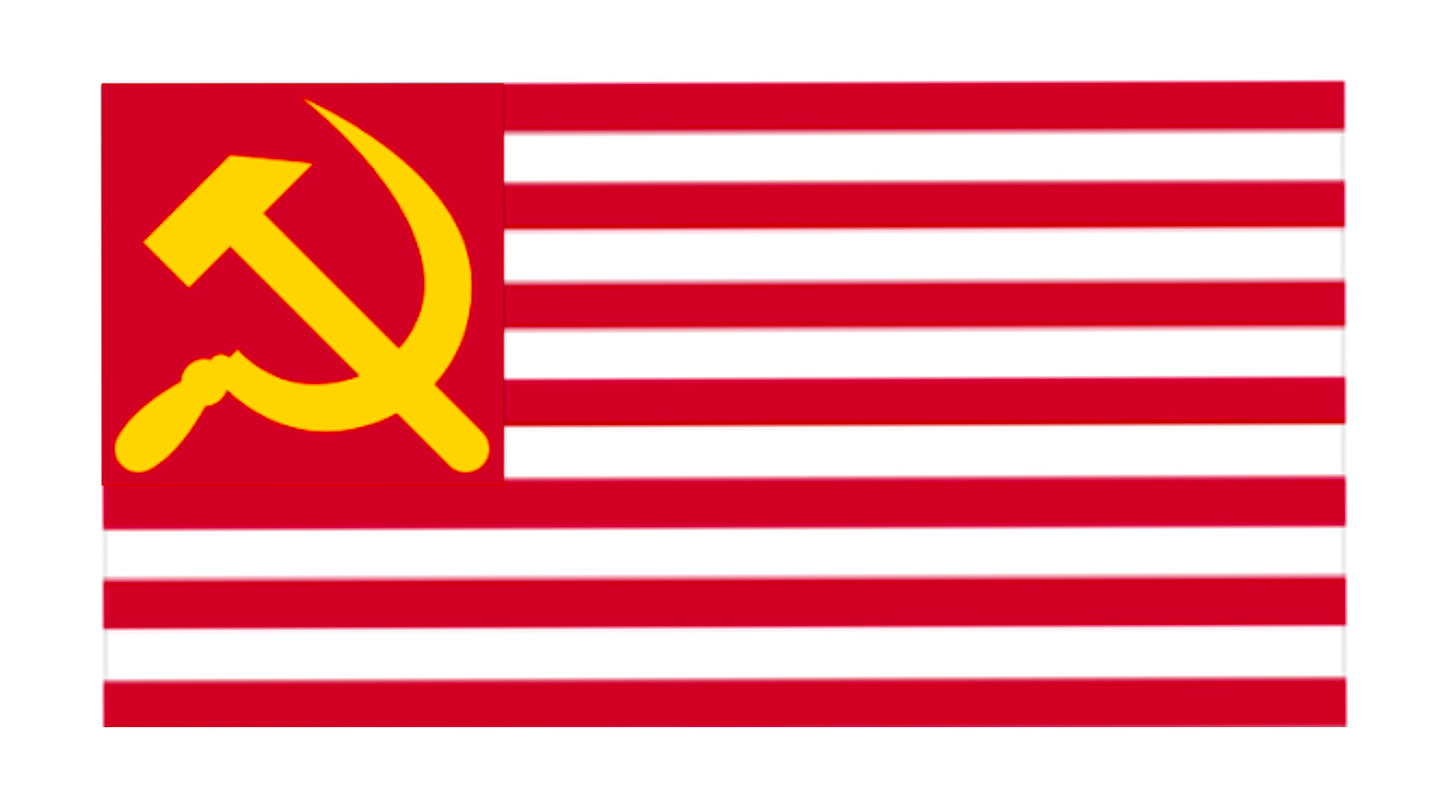The (unfortunately) immortal works of Karl Marx and Friedrich Engels include a minor pamphlet called The Communist Manifesto, written in 1847; you’ve probably never heard of it. It’s an obscure text on political-economic-historical theory, and is hardly of any consequence.
Companion works to the Manifesto include a catechism, also written in 1847. The first draft of this catechism, called Draft of a Communist Confession of Faith, begins as follows:
Are you a Communist? Yes.
What is the aim of the Communists? To organize society in such a way that every member of it can develop and use all his capabilities and powers in complete freedom and without thereby infringing the basic conditions of this society.1
And so on.
The later draft, The Principles of Communism2, changes some of the content slightly, but keeps the question-answer format. It lays out, clearly and succinctly, what the Communist vision is for the world—the entire world. More importantly, it describes the approach; the “how”.
The expression that comes to mind is: “when your enemy tells you what he intends to do, take him at his word.”
As a side note: it is telling that, from its very beginning, Communism considered itself to be a new faith. It sought to replace all religion with itself.
From Confession of Faith:
22. Do Communists reject existing religions? All religions which have existed hitherto were expressions of historical stages of development of individual peoples or groups of peoples. But communism is that stage of historical development which makes all existing religions superfluous and supersedes them.
From Principles:
What will be its attitude to existing religions? All religions so far have been the expression of historical stages of development of individual peoples or groups of peoples. But communism is the stage of historical development which makes all existing religions superfluous and brings about their disappearance.
A couple of choice tidbits for your consideration (emphases added):
Will it be possible for private property to be abolished at one stroke? No, no more than existing forces of production can at one stroke be multiplied to the extent necessary for the creation of a communal society. In all probability, the proletarian revolution will transform existing society gradually and will be able to abolish private property only when the means of production are available in sufficient quantity.
What will be the course of this revolution? Above all, it will establish a democratic constitution, and through this, the direct or indirect dominance of the proletariat. … Democracy would be wholly valueless to the proletariat if it were not immediately used as a means for putting through measures directed against private property and ensuring the livelihood of the proletariat.
If you haven’t heard of Yuri Bezmenov or watched his interview, stop reading and go watch it. Here’s a convenient link:
Again: I’m not endorsing it or agreeing with it, nor am I saying it would be a good thing. But when the enemy tells us what he intends to do, we should take him at his word.
One final anecdote, to illustrate the power of childhood indoctrination.
Setting: Moscow, late 80s, a two-bedroom private apartment in the suburbs (middle or even upper middle class, by Soviet standards). Two parents explain to their young son that the family is going to live in America for the next few years; the father’s government job requires it. Both of the parents are college-educated in top universities, have lived abroad—to include in America—and understand the falsehoods of the USSR. The son does not; he only knows what he’s been taught in school and in books, of which he’s read a lot. His response:
I will come with you to America, but only on the condition that I will be able to fight against capitalism while we are there.
- 10-year-old me
The parents knew better, but could not say anything. If they had tried to tell me the truth about communism and America, then I might have said something to my friends or in school. And then “they” would have come for us.
This is what happens when children’s education is taken away from the parents and comes under the control of the state.
Over the next few posts, I’m going to dig into The Principles of Communism some more. Let’s see where we end up. Here’s a hint of what’s to come:


